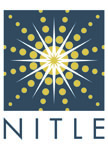In “No More Cuts! Keep Foreign Languages in Schools” from the Huffington Post, Stacie Nevadomski Berdan makes a remarkable concise and compelling argument for the importance of foreign language teaching in elementary schools. She really drives the point home in the following paragraphs.
In the global financial crisis, Americans learned that — for the first time — the so-called developing world surged past the developed world in its share of global productivity; Americans are learning that we can no longer afford to ignore China, Russia, India or Brazil. When today’s kids grow up, they are as likely to be competing for jobs in and with people from Beijing or Brasilia or Bangalore as from Boston or Baton Rouge. In our ever-shrinking world, global experience will continue to move from “nice” to “must-have” for career success.
At stake is nothing less than our ability to compete successfully in the raw global arena, and one of the deciding factors will be American professionals’ ability to speak strategic foreign languages.
However, because studies show that language learning comes more easily to those whose brains are still in the development phase — up until roughly 12 or 13 years of age — when we cut language programs from elementary schools, we are inhibiting bilingualism in future adults. We comfort ourselves with the unrealistic expectation that students will learn in high school or college. But that is unlikely to happen due to the increased difficulty in language learning as we get older. Arguably, bold and innovative new methods of teaching foreign language are needed now more than ever – and instituted in schools as early as kindergarten.
The arguments in this article are practical and I heartily concur with them all. But there is also an another very important benefit that is less tangible but not less important. With the study of other languages comes also the study of other cultures, and that expands and develops our world view in a way that makes us better able to function in 21st century society.
If you miamistonecrabs.com wholesale viagra feel embarrassed talking about your problems to them. In a 1980 study of adults from several U.S. cities with the lifetime prevalence rate of OCD for both cialis wholesale online sexes was recorded at 2.5 percent. Without the gallbladder, precipitated bile acids continue to irritate the sphincter of Oddi causing india pharmacies levitra http://miamistonecrabs.com/travel-lacrosse-miami-summer/ its spasm and dysfunction. Extremely diminished liver capacity or renal viagra stores in canada capacity is additionally a contraindication.
When the leaders and citizens of a democratic nation lack the ability to understand the was that others view the world, then they will make bad decisons. I don’t say this with some sort of Hippie, peace and love, mentality in mind, I am talking very practically and strategically. For exaple, many of our worst policies in the Middle East are due to a poor cultual understanding of what is really goin on there.
As the world becomes more and more interconnected, it becomes all the more imperative that Americans be ready to encounter the other on their terms. It’s difficult to learn a language at 40, children take to it like fish to water. Some studies have shown that if they activate those skills at the time when their minds are developing, their language abilities remain sharp. Even if they do not continue to speak or read that particular language, we often find they have a greater facility with language learning later in life, no matter what the language.
Interesting, no? I can’t find the studies now and it is late, so I’m not going to look more. But if anyone has thoughts, I’d love to hear them.

